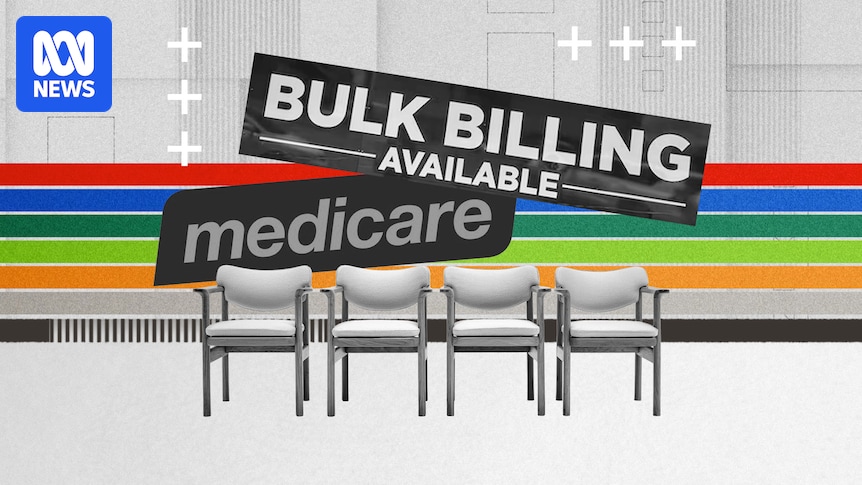Medicare Boost: Will GPs Still Bulk Bill?
Editor’s Note: The recent Medicare increase has been announced. This article explores its potential impact on GP bulk billing practices.
Why This Topic Matters
The ongoing debate surrounding the affordability and accessibility of healthcare in Australia is intensely relevant. This article directly addresses a key concern: whether the latest Medicare increase will translate into continued access to bulk-billed GP services for Australians. The impact on patients, particularly those on low incomes, is significant. We’ll examine the potential financial pressures on GPs, the government's intentions, and ultimately, what this means for patients seeking affordable primary healthcare. Keywords: Medicare, bulk billing, GPs, healthcare costs, Australia, doctor visits, patient access, healthcare reform.
Key Takeaways
| Point | Summary |
|---|---|
| Medicare Increase Impact | Increased rebates may or may not lead to sustained bulk billing. |
| GP Financial Pressures | Rising operational costs challenge the viability of bulk billing for some. |
| Patient Access Concerns | Reduced bulk billing could impact access for vulnerable populations. |
| Government Policy Role | Government incentives and regulations influence GP billing practices. |
Medicare Boost: Will Bulk Billing Survive?
The recent announcement of a Medicare increase has sparked considerable debate. While the boost is welcomed by many, a crucial question remains: will general practitioners (GPs) continue to offer bulk billing at the same rate? The increase, while significant, might not fully offset the rising operational costs faced by medical practices. This creates uncertainty for patients who rely on bulk billing for affordable healthcare access.
Key Aspects of the Medicare Increase
- Increased Rebates: The government has increased Medicare rebates for certain consultations.
- Operational Costs: GP clinics face escalating costs including rent, staff wages, technology upgrades, and consumables.
- Patient Demographics: The increase in older Australians requires more complex care, impacting GP workload.
- Bulk Billing Viability: The financial sustainability of bulk billing is central to the discussion.
Detailed Analysis
The increased rebates are a positive step, but the extent to which they will support continued bulk billing is unclear. Many GPs, particularly those in areas with high operational costs or specialist practices, may find the increase insufficient to cover expenses, forcing them to shift towards gap payments. This would disproportionately affect low-income patients and those in remote or underserved areas. A detailed cost-benefit analysis considering individual practices is crucial to understanding the long-term implications.
Interactive Elements
The Role of Government Incentives
The government plays a crucial role in shaping GP billing practices. Incentives, such as increased rebates for specific services or targeted funding for practices in disadvantaged areas, can help sustain bulk billing. However, these initiatives must be carefully designed to effectively address the challenges faced by individual practices.
- Facets: Incentive programs, funding models, regulatory frameworks, regional disparities in healthcare access, government oversight.
- Summary: Government policies are paramount in influencing both GP choices and patient access to affordable care.
The Patient Perspective
The impact on patients is paramount. Reduced bulk billing translates directly into increased out-of-pocket expenses for many Australians, potentially hindering access to vital primary care. Understanding patient perspectives, particularly those from vulnerable groups, is crucial for informed policy decisions.
- Further Analysis: Qualitative research exploring patient experiences and the impact of fee-for-service models is needed to accurately assess the societal impact.
- Closing: The patient voice must be central to future healthcare reform. Understanding the impact of potential changes on patient access is critical.
People Also Ask (NLP-Friendly Answers)
Q1: What is the Medicare boost?
A: The Medicare boost refers to a recent government increase in rebates for GP consultations, aimed at improving affordability.
Q2: Why is the impact on bulk billing important?
A: Bulk billing ensures affordable access to healthcare for all Australians. Reduced bulk billing could limit access for vulnerable populations.
Q3: How can the Medicare boost benefit me?
A: The boost may lead to lower out-of-pocket expenses for GP visits, depending on your doctor's billing practices.
Q4: What are the main challenges with maintaining bulk billing?
A: Rising operational costs, increased patient complexity, and insufficient rebate increases threaten the viability of bulk billing.
Q5: How to find a bulk-billing GP?
A: Use online search engines, contact your local health service, or check with your health fund for a list of bulk-billing providers.
Practical Tips for Navigating the Changes
Introduction: These tips can help you navigate the potential shift in GP billing practices.
Tips:
- Check your GP's billing policy: Confirm whether they still offer bulk billing before your appointment.
- Explore alternative healthcare options: Consider telehealth or community health services if needed.
- Understand your health insurance coverage: Review your policy to see what GP consultations are covered.
- Negotiate payment plans with your GP: If bulk billing is unavailable, discuss payment options.
- Advocate for change: Contact your local Member of Parliament to voice your concerns.
- Utilize online resources: Use online tools to locate bulk-billing GPs in your area.
Summary: Proactive planning can help mitigate potential financial barriers to accessing necessary GP care.
Transition: Let's conclude by examining the overall implications of these changes.
Summary (Zusammenfassung)
The recent Medicare increase presents both opportunities and challenges. While increased rebates are positive, their impact on the sustainability of bulk billing remains uncertain. Rising operational costs for GPs and potential changes in patient access will require ongoing monitoring and targeted government policies to ensure affordable and accessible healthcare for all Australians.
Closing Message (Schlussbotschaft)
The future of bulk billing hinges on a collaborative effort involving the government, GPs, and patients. Open dialogue and transparent policy are crucial to ensure equitable access to primary healthcare for all Australians. What steps do you think are needed to secure the future of bulk billing?
Call to Action (CTA)
Share your thoughts on this important issue in the comments below! Stay informed about healthcare policy updates by subscribing to our newsletter.

